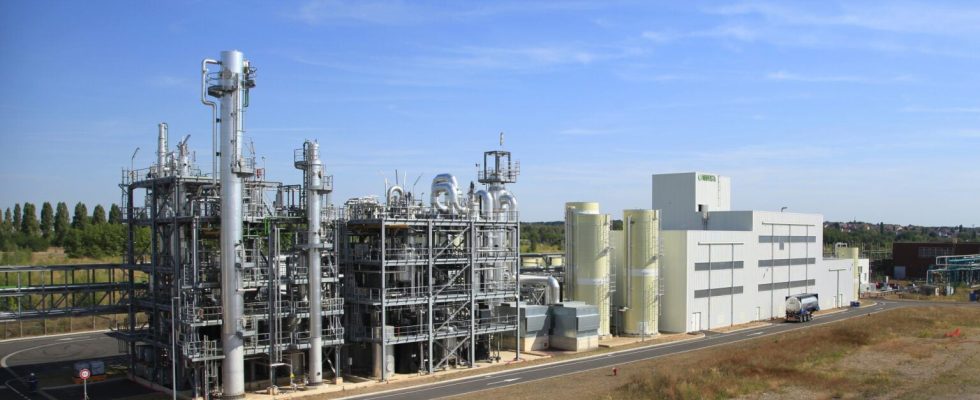The five months that have passed since his arrival as deputy general manager have hardly diminished Rudolph Hidalgo’s admiration for the biochemistry company Metabolic Explorer – MetEx for short. “It is a unique company: it is one of the rare start-ups in France to have scaled up to an industrial scale. In its Carling factory, it has unique know-how in the world to meet its mission, which consists of developing biosourced alternatives to oil”, marvels this crisis management specialist, inexhaustible on the Clermont-based mid-sized company of 450 employees. Thanks to the vast Amiens site – acquired in 2021 from the Japanese group Ajinomoto, in a hurry to get rid of it – MetEx has been propelled to the rank of the last lysine producer in Europe, the manager still enthuses. Considered essential for humans, this amino acid is also used in animal food. It is also used in the production of drugs such as aspirin. And Rudolph Hidalgo boasts, in each press intervention, “MetEx’s contribution to food and health sovereignty” of France and the Old Continent.
Except that since the end of March, the factories in Amiens (Somme) and Carling (Moselle) have been placed in receivership, and the company, in safeguard. Between the first half of 2022 and that of 2023, its turnover melted like snow in the sun, going from 129 million to 69 million euros. The fault is entirely attributable to “exogenous factors”, promises management: the rise in energy prices first, but especially that of sugar, which is used in the composition of lysine. All while Chinese competition is slashing prices, as it has already done in solar panels. “China sells its lysine for around 1.50 euros per kilo, half the price of the MetEx factory,” confirms a good expert in the sector. An irretrievable level according to management, which appeals to the State. Objective: open discussions with sugar manufacturers in the hope of setting a more competitive price. “The investors we approached have all confirmed their interest in the company, provided that a solution is found on sugar,” guarantees the deputy general director.
Give-and-take strategy
Barely had the rescue of the train wheel manufacturer Valdunes been recorded when this hot new issue found its place in the Bercy offices. And this, right at the moment when that of the steelmaker Ascometal is reopening, placed in receivership for the third time in the space of ten years. Big stones in the shoes of the executive, very keen to improve its industrial record and demonstrate its contribution to the reindustrialization of the country. Taken to task by socialist senator Rémi Cardon on the MetEx file, the Minister of Industry defended tooth and nail the efforts already made. “The company has received a certain amount of aid: an investment from Bpifrance [NDLR : premier actionnaire de MetEx via le fonds SPI]an EMP, a subsidy within the framework of France 2030. We cannot say that the State was not there”, insisted Roland Lescure at the end of March in the Senate. And scratch the company’s managers: “Despite this, because sugar is paid too dearly by the company and for management and management reasons, the company has not achieved the economic performance that We all have the right to wait.”
As with every rescue file, the government will stick to its philosophy, it is argued within its cabinet. Aid yes, but on condition that the roadmap and the buyers are credible, and the stakeholders are fully invested in the project. The contribution to national sovereignty is of course closely scrutinized. Hence the eagerness of the Minister of Industry to go on Monday April 8 to the MetEx premises in Amiens – the mobilization of part of the left behind the LFI deputy François Ruffin not being unrelated either. … There is no question, however, of attaching performance obligations to the aid granted. It remains to be seen whether the savior of Valdunes, the serial buyer Europlasma, and those who will succeed him at the bedside of companies in distress, will all play the game of “give and take” so dear to Roland Lescure.
.
